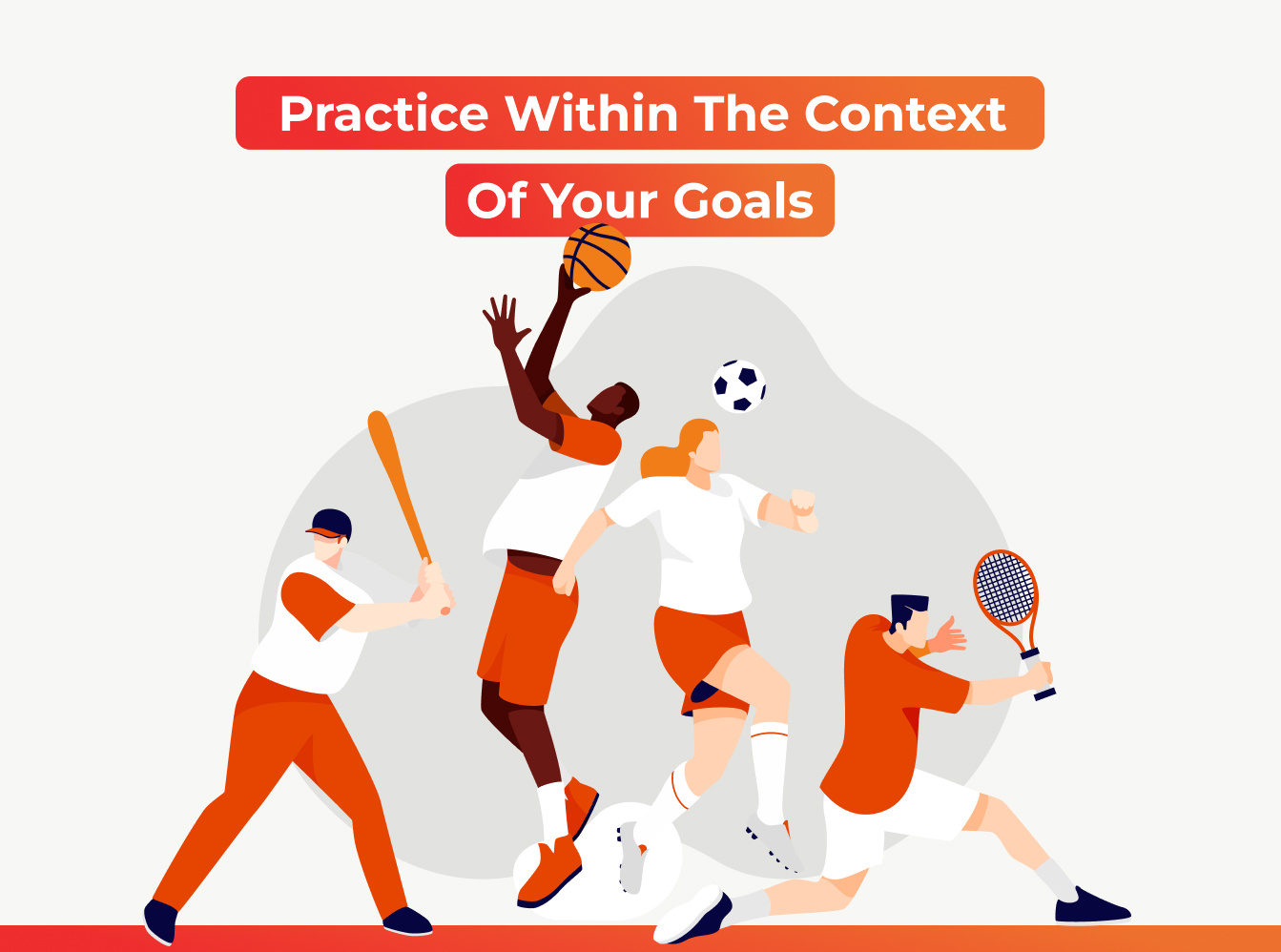During my time as a high-performance athlete, I learned countless things from my coaches. From technical skills to life skills that I still use today, my coaches were an invaluable resource.
But here’s the deal - coaches are people too. They have limits to their patience and a vested interest in seeing you improve and succeed.
It was super interesting for me to go from being coached to coaching. It helped me see the little things I did (and didn’t do) as an athlete that unnecessarily slowed my progress.
And, most importantly, it helped me see the common things all coaches wish their athletes would understand about the coaching process.
So today, I’m going to share my top 3 things your coach wishes you did.
Obviously, this won’t be true for every coach, these are common things I hear time and time again from the thousands of coaches who use CoachNow everyday.
Let’s get to it.
But here’s the deal - coaches are people too. They have limits to their patience and a vested interest in seeing you improve and succeed.
It was super interesting for me to go from being coached to coaching. It helped me see the little things I did (and didn’t do) as an athlete that unnecessarily slowed my progress.
And, most importantly, it helped me see the common things all coaches wish their athletes would understand about the coaching process.
So today, I’m going to share my top 3 things your coach wishes you did.
Obviously, this won’t be true for every coach, these are common things I hear time and time again from the thousands of coaches who use CoachNow everyday.
Let’s get to it.

Practice Within the Context of Your Goals
I’ve talked about periodization countless times before but that’s because it’s so important for athletes to understand.
Periodization is all about the systematic planning of athletic training.
Basically, everything you do should be working towards a specific goal in order to achieve peak performance at the right time.
Periodization takes the guesswork out of training - it allows you to set short-term goals and gives you a chance to prepare adequately ahead of time, eliminating the risk for stress and burnout.
Right before you’re about to compete is NOT the time to be focused on the technical pieces of your game. If you’ve employed periodization, you proactively train based on the event you want to peak for. And that means you put in the work BEFORE you need to reach your goal.
The best athletes, coaches, and olympians practice periodization - splitting up their practice plans into off-seasons, preseasons, and the season itself.
For example, Tom Brady said that he was never nervous going into games - only excited, because he knew he’d already done all of the preparation ahead of time.
Think about it. Would you rather go into an event stressed and panicking, scrambling to fix your technique at the last minute, or show up on the day of your event, prepared mentally and physically?
If you’re interested in diving even deeper into the importance of periodization, I’ve also talked more about this concept here and here.
Whether you play a team or individual sport, periodization guarantees progress, improves confidence, and stops burnout - give it a try.
Periodization is all about the systematic planning of athletic training.
Basically, everything you do should be working towards a specific goal in order to achieve peak performance at the right time.
Periodization takes the guesswork out of training - it allows you to set short-term goals and gives you a chance to prepare adequately ahead of time, eliminating the risk for stress and burnout.
Right before you’re about to compete is NOT the time to be focused on the technical pieces of your game. If you’ve employed periodization, you proactively train based on the event you want to peak for. And that means you put in the work BEFORE you need to reach your goal.
The best athletes, coaches, and olympians practice periodization - splitting up their practice plans into off-seasons, preseasons, and the season itself.
For example, Tom Brady said that he was never nervous going into games - only excited, because he knew he’d already done all of the preparation ahead of time.
Think about it. Would you rather go into an event stressed and panicking, scrambling to fix your technique at the last minute, or show up on the day of your event, prepared mentally and physically?
If you’re interested in diving even deeper into the importance of periodization, I’ve also talked more about this concept here and here.
Whether you play a team or individual sport, periodization guarantees progress, improves confidence, and stops burnout - give it a try.

Document, Document, Document
It’s one thing to hear something and an entirely different thing to retain something.
Truth is, only a small percentage of what you learn from your coach is retained after a coaching session. The only way to truly remember what you learned is to document it.
By keeping a coaching journal, you’ll remember what’s truly important throughout your training journey, from your own notes, to tips from your coach, and so much more.
Plus, you won’t waste precious time asking your coach to repeat themselves for the umpteenth time. By proactively documenting key coaching moments, you’ll have what you need to improve faster, and avoid annoying your coach.
This is something I REALLY wish I had done more of during my time as an athlete.
To some extent, I did document certain things while practicing, but unfortunately, back then, it was either a handwritten note or a video file on YouTube (or even a VHS video tape back in the day). Because I lost my handwritten notebook and all of the technology has changed so dramatically over the years, I’ve basically lost it all. It’s actually quite devastating when I think about it.
But I have good news.
If you’re reading this, you have the great benefit of knowing that for the remainder of your life, your content and information will be in a digital format that you can retrieve, not a physical thing that you can’t always get access to or find.
Using CoachNow as a training journal will help you remember key takeaways from your coaching sessions, monitor your progress, show improvement to coaches, make you stand out from the crowd, and ultimately, help you get better, faster.
Not only does keeping a coaching journal help you retain your coach’s insights better, it helps YOU remember precious insights you’ve had along your journey while also empowering you to see the progress that you’re making every step of the way.
When you’re training everyday, it’s very easy to get caught up in tiny errors and lose perspective on your improvements as a whole. By documenting your mistakes and your successes simultaneously, you’ll actually be able to get a clearer picture of how far you’ve actually come, increasing your confidence tenfold.
Ultimately, documenting your practice helps you say goodbye to the days of being unorganized, scrambling to remember exactly what your coach said, and makes your training simpler and WAY more efficient.
Truth is, only a small percentage of what you learn from your coach is retained after a coaching session. The only way to truly remember what you learned is to document it.
By keeping a coaching journal, you’ll remember what’s truly important throughout your training journey, from your own notes, to tips from your coach, and so much more.
Plus, you won’t waste precious time asking your coach to repeat themselves for the umpteenth time. By proactively documenting key coaching moments, you’ll have what you need to improve faster, and avoid annoying your coach.
This is something I REALLY wish I had done more of during my time as an athlete.
To some extent, I did document certain things while practicing, but unfortunately, back then, it was either a handwritten note or a video file on YouTube (or even a VHS video tape back in the day). Because I lost my handwritten notebook and all of the technology has changed so dramatically over the years, I’ve basically lost it all. It’s actually quite devastating when I think about it.
But I have good news.
If you’re reading this, you have the great benefit of knowing that for the remainder of your life, your content and information will be in a digital format that you can retrieve, not a physical thing that you can’t always get access to or find.
Using CoachNow as a training journal will help you remember key takeaways from your coaching sessions, monitor your progress, show improvement to coaches, make you stand out from the crowd, and ultimately, help you get better, faster.
Not only does keeping a coaching journal help you retain your coach’s insights better, it helps YOU remember precious insights you’ve had along your journey while also empowering you to see the progress that you’re making every step of the way.
When you’re training everyday, it’s very easy to get caught up in tiny errors and lose perspective on your improvements as a whole. By documenting your mistakes and your successes simultaneously, you’ll actually be able to get a clearer picture of how far you’ve actually come, increasing your confidence tenfold.
Ultimately, documenting your practice helps you say goodbye to the days of being unorganized, scrambling to remember exactly what your coach said, and makes your training simpler and WAY more efficient.

Analyze Yourself and Distinguish Feel and Real
When I was an athlete, I understood the importance of taking videos of my training, but I didn’t actually have access to any video cameras, only mirrors.
Luckily for you, access to recording yourself has never been easier.
Videoing yourself routinely is essential in order to get a sense of what your feel vs. real is.
Feel vs. real is essentially a disconnect between how you perceive yourself in a movement vs. what’s actually happening in reality.
When you’re training day in and day out, it’s all too easy to focus on the minutiae of your practice.
It may feel like you’re stuck on a certain aspect of your development - your swing isn’t fast enough, your throw isn’t accurate enough, etc.
By recording yourself while training, not only can you crack down on repetitive mistakes you might be encountering, but perhaps more importantly, you’re able to appreciate all of the progress you’ve been making.
Analyzing your movement is like having a personal coach by your side, pointing out things you may have missed and seeing things from a different vantage point.
If you’re unsure where to begin, CoachNow’s video analysis tools will help give you an unfiltered view of your performance.
By leveraging powerful AI tools, you can analyze, watch in slo-mo, compare progress, and ultimately correct your technique faster and easier than ever before.
Luckily for you, access to recording yourself has never been easier.
Videoing yourself routinely is essential in order to get a sense of what your feel vs. real is.
Feel vs. real is essentially a disconnect between how you perceive yourself in a movement vs. what’s actually happening in reality.
When you’re training day in and day out, it’s all too easy to focus on the minutiae of your practice.
It may feel like you’re stuck on a certain aspect of your development - your swing isn’t fast enough, your throw isn’t accurate enough, etc.
By recording yourself while training, not only can you crack down on repetitive mistakes you might be encountering, but perhaps more importantly, you’re able to appreciate all of the progress you’ve been making.
Analyzing your movement is like having a personal coach by your side, pointing out things you may have missed and seeing things from a different vantage point.
If you’re unsure where to begin, CoachNow’s video analysis tools will help give you an unfiltered view of your performance.
By leveraging powerful AI tools, you can analyze, watch in slo-mo, compare progress, and ultimately correct your technique faster and easier than ever before.
The biggest takeaway that I want you to have from this blog is understanding that becoming a high-performing athlete isn’t just about putting in hours of physical work; it’s about being strategic, mindful, and adaptable in how you approach your training.
But this doesn’t have to be as daunting as it sounds.
Creating specific goals, documenting your practice, and taking videos during your training are three simple tools that will help you feel more in control of your development.
And trust me, your coach will be happy if you follow these tips.
As you progress along your athletic journey, give them a try- and know that CoachNow will be here to help you every step of the way.
But this doesn’t have to be as daunting as it sounds.
Creating specific goals, documenting your practice, and taking videos during your training are three simple tools that will help you feel more in control of your development.
And trust me, your coach will be happy if you follow these tips.
As you progress along your athletic journey, give them a try- and know that CoachNow will be here to help you every step of the way.
